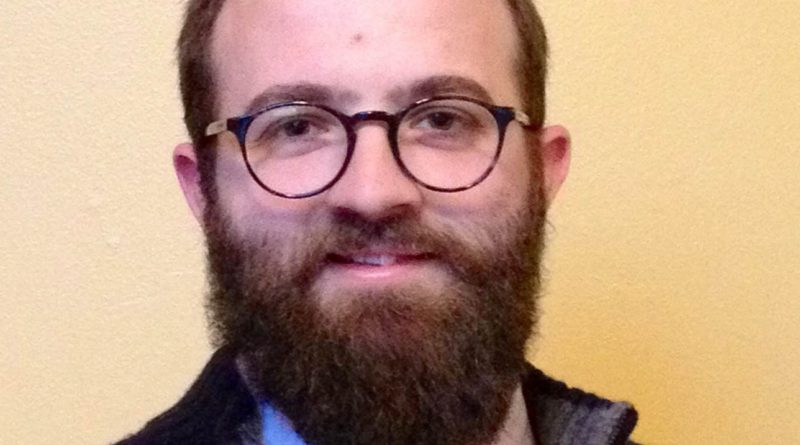Unity, Purity, and Peace: Struggles in the Reformed Church in America: Peace by Matthew van Maastricht
In the debates and dialogues in the RCA there are three words that have become a flashpoint.
“…unity, purity, and peace.”[1]
This triplex, then, tends to frame the narrative in the RCA, and it is so often used as weapons. But the bigger question, I think, is what do these words mean? How are these values lived out? This series will examine the tensions in the RCA from the perspective of these three values, and, most of all, exploring what these may mean and what implications it has for the ongoing tensions and divisions in the RCA.
The “liberals” have unity, and the “conservatives” have purity, it is sometimes said. However, in this mix, there is a missing component—peace. But just as the fruit of the spirit cannot be separated from one another—it is fruit of the Spirit, singular—so also these three cannot be separated. Indeed, we seek the things that make for unity, purity, and peace.
Parsing Peace
The English word “peace” is usually used to refer to an absence of hostility or conflict. Therefore, anytime a nation is not at war, it is at peace. War is the baseline, and anything that is not war is peace. However, both the Hebrew word shalom and the Greek word eirḗnē refer to the presence of completeness, wholeness, or concord. Peace, then, is not the absence of conflict but the presence of wholeness. Conflict, then, is not the baseline, wholeness is, and when wholeness is present, there is peace.
Is peace, then, something that is, or something that is striven toward?
One hint, I think, occurs in the wording of the promises themselves. In the promises, either in membership, ordination, or installation, people promise to seek “the things that make for unity, purity, and peace.” Seeking and maintaining or possessing are two different things. We are called to seek, which is a search, a striving. We do not promise to maintain or create peace, but to seek. Further, while I don’t want to make too much of the nuances between seeking peace, and seeking the things that make for peace, it is worthwhile noting that peace is not the object of our seeking, the things that make for it are. While we would, hopefully, grow increasingly toward peace, peace itself is not the primary object. The goal is the journey.
So often one can hear the exasperated cries, “I’m tired of fighting.” Often, it is this that causes one of three things: capitulation, attempting to expunge the other, or leaving for a new ecclesiastical home. Here I want to be careful, so as not to be misunderstood. I am not casting judgment in any way on people who feel the need to find a new ecclesiastical home. Nor is my intent to push people to remain in places that are harmful to them.
I do think, however, that peace is not something that is, or will be, but like unity and purity, something for which we work, toward which we strive. And to strive for the things that make for peace means that we are called to be peacemakers–people who heal relationships, who heal rifts, divisions, who make what is broken whole again. I would be remiss, of course, if I were to give the implication that peacemaking is ultimately up to us. Indeed, it is a work of God, but God also given us this ministry and it is something toward which God calls us.
Conclusion
As noted previously, in the Belhar Confession, unity is central, but it is not separated from reconciliation or justice. Similarly, unity and purity do not exist without peace—wholeness, completeness. These do not exist in isolation from one another, but linked to one another. A friend and colleague of mine often says that in what we do and say we must seek to uphold all three without sacrificing any of them. The question, then, is not how we uphold one or two, but all three at the same time.
Looking at these three values—unity, purity, and peace—I offer few solutions to the conflict within the RCA, but hopefully open up the depth and nature of these divisions. I do this not to speak poorly about my adopted church family, but to look at what has happened and is happening so that we might be able to move forward in a healthy, just, and God-honoring way.
Unity, purity, and peace. In all of their complexity, they are not something that we can have or not have. Nor are they something that we can achieve on this side of the veil. Indeed, these are eschatological values that we are called to embrace and live into now. These are realities that will never be accomplished on this side of eternity, but are always a state of becoming, a state of emerging.
All in the RCA have promised to see the things that make for unity, purity, and peace. They are all more complex and multifaceted than they appear on the surface. I do not purport to have definitive interpretations and definitions on how this should play out. But we ought to grapple with these tensions as we find our way through them, collectively and individually.
Matthew van Maastricht is the pastor at the Altamont Reformed Church in Altamont, New York, and a Reformed Church polity and standards teacher.
[1] Book of Church Order of the Reformed Church in America (BCO), p. 130.

